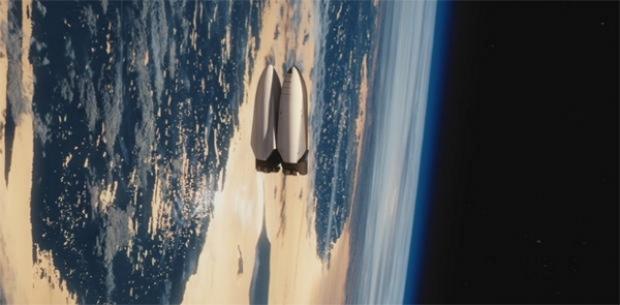SpaceX CEO and Tesla Motors founder Elon Musk is dreaming big as usual: his newly unveiled long-term plan is to colonize Mars, among other planets.
The first phase: launch an upgraded, unpiloted Dragon spacecraft toward Mars in 2018, with the aim of obtaining flight experience, while developing advanced boosters, spacecraft, and subsystems necessary for what Musk calls his "Interplanetary Transport System".
A later phase: building a 400 foot tall rocket to send large crew capsules into low-Earth orbit. The capsules are to be fueled for a trip to Mars by the same rocket, which will also carry unpiloted propellant tankers. One of the principles behind the mission structure is to make the trips much more affordable: $200,000 per ticket versus the previous standing $10 billion.
"There are really two fundamental paths," Musk declared to a packed crowd at the International Astronautical Congress in Mexico today. "One path is we stay on Earth forever, and there will be some eventual extinction event. ... The alternative is to become a space-faring civilization and a multi-planet species."
"That's what we want. So how do we figure out how to take you to Mars and create a self-sustaining city, a city that's not really an outpost but could become a planet in its own right and thus we could become a truly multi-planet species."
The trip to Mars would take between 90 and 140 days, or, an average of about four months. The trip won't be cramped and boring like what you're likely picturing though: Musk says you can expect large crew compartments, zero G games, movies, a restaurant, and more.
"It'll be really fun to go. You'll have a great time."
Unless you die, that is: the initial trips, he states, are "really very dangerous" with a high risk of fatalities.
Musk's end goal is to send up to one million people to the red planet in 10,000 person flights at a time, something he believes his achievable in less than 100 years.
Funding is a challenge of course (the project is estimated to cost $10 billion through initial flights alone), but he expects a "pretty decent net cash flow" from launching satellites, servicing NASA's space station, and transferring cargo to and from the station. Additionally, there has been a lot of private sector interest as well as some government interest.


